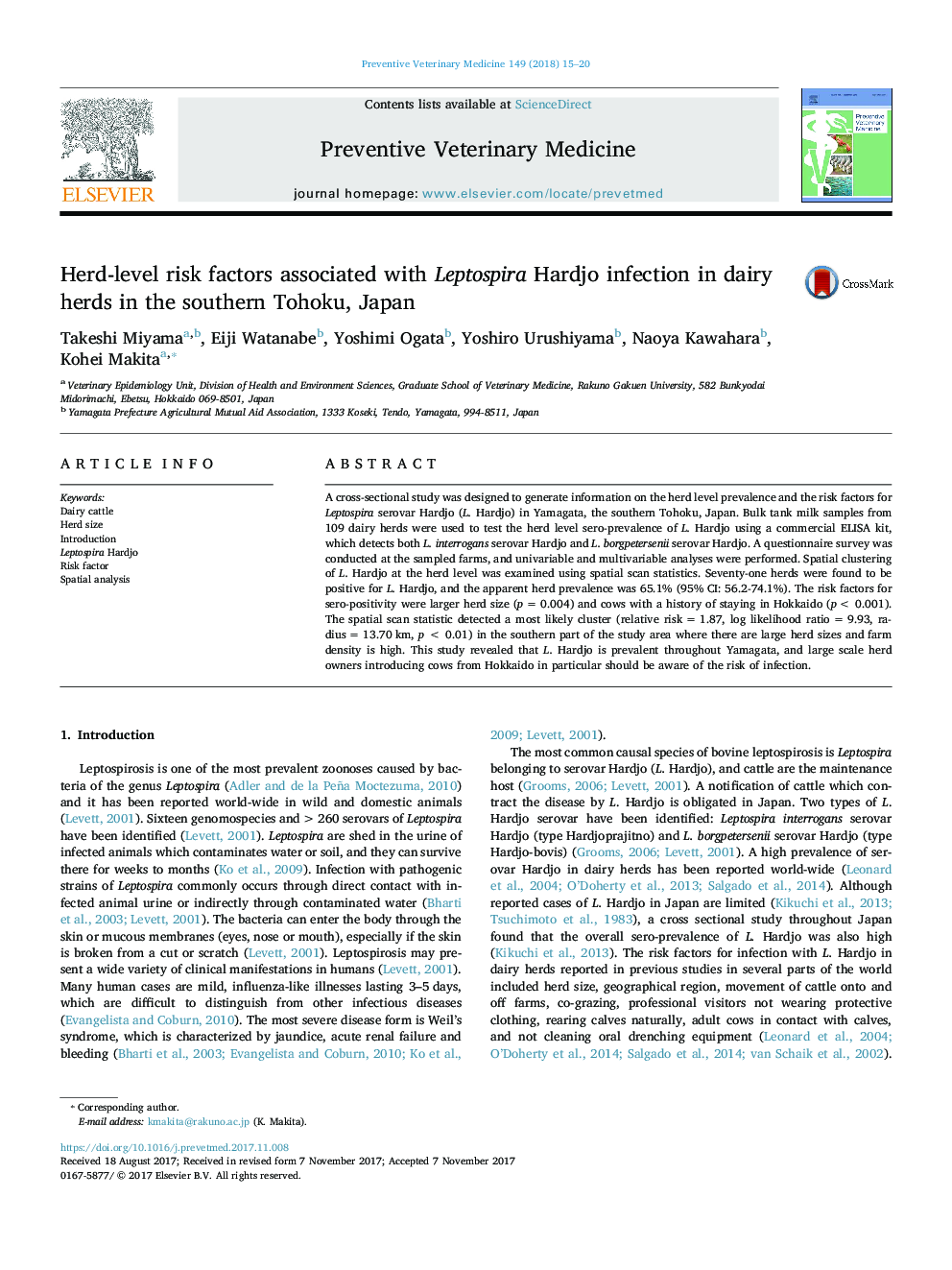| Article ID | Journal | Published Year | Pages | File Type |
|---|---|---|---|---|
| 8503591 | Preventive Veterinary Medicine | 2018 | 6 Pages |
Abstract
A cross-sectional study was designed to generate information on the herd level prevalence and the risk factors for Leptospira serovar Hardjo (L. Hardjo) in Yamagata, the southern Tohoku, Japan. Bulk tank milk samples from 109 dairy herds were used to test the herd level sero-prevalence of L. Hardjo using a commercial ELISA kit, which detects both L. interrogans serovar Hardjo and L. borgpetersenii serovar Hardjo. A questionnaire survey was conducted at the sampled farms, and univariable and multivariable analyses were performed. Spatial clustering of L. Hardjo at the herd level was examined using spatial scan statistics. Seventy-one herds were found to be positive for L. Hardjo, and the apparent herd prevalence was 65.1% (95% CI: 56.2-74.1%). The risk factors for sero-positivity were larger herd size (p = 0.004) and cows with a history of staying in Hokkaido (p < 0.001). The spatial scan statistic detected a most likely cluster (relative risk = 1.87, log likelihood ratio = 9.93, radius = 13.70 km, p < 0.01) in the southern part of the study area where there are large herd sizes and farm density is high. This study revealed that L. Hardjo is prevalent throughout Yamagata, and large scale herd owners introducing cows from Hokkaido in particular should be aware of the risk of infection.
Related Topics
Life Sciences
Agricultural and Biological Sciences
Animal Science and Zoology
Authors
Takeshi Miyama, Eiji Watanabe, Yoshimi Ogata, Yoshiro Urushiyama, Naoya Kawahara, Kohei Makita,
